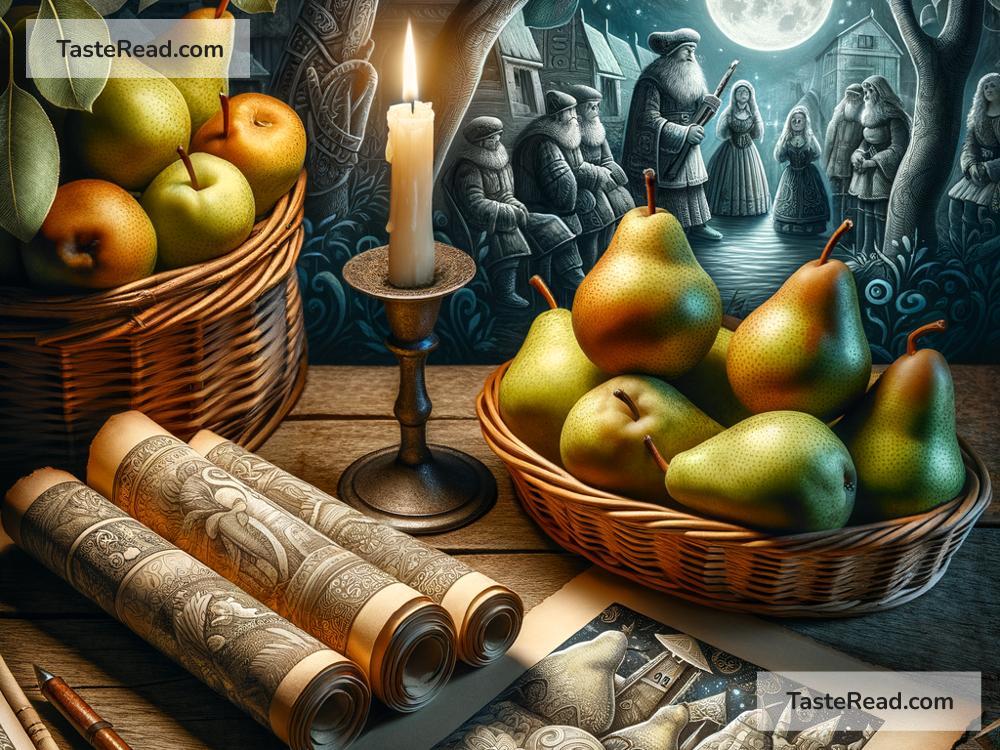The Curious Story of Pears in Ancient Folklore
When you think of pears today, you might picture a juicy snack, sweet and perfect for a dessert or pie. But pears are much more than just a tasty fruit. In fact, pears have a curious history rooted in ancient folklore that stretches across cultures and generations. From myths and legends to symbolism and spiritual meaning, this humble fruit has carried fascinating stories throughout time.
Pears in History and Folklore
The pear is one of the oldest cultivated fruits in the world. Historians believe pears have been grown for over 3,000 years. While the fruit likely originated in the regions around Asia and Eastern Europe, pears quickly spread across ancient civilizations. Their sweetness and versatility made them popular, but their presence in folklore added an intriguing layer of mystery.
Ancient peoples often viewed nature’s bounty as sacred, and pears were no exception. Pear trees, with their long lives and ability to produce fruit even in less-than-ideal conditions, became symbols of resilience, fertility, and abundance. Folktales from different cultures began to weave these qualities into their narratives.
Pears in Greek Mythology
Greek mythology is home to many fruit-related stories, and pears feature prominently in several of them. In ancient Greece, pears were associated with Hera, the queen of the gods and goddess of marriage and family. Pear trees were often planted to honor her, as they symbolized love, prosperity, and the continuity of life.
One lesser-known Greek tale connects pears to wisdom and generosity. It is said that the goddess Demeter, who presided over agriculture and fertility, gifted pears to humans as a token of goodwill. According to legend, pears were nourished by Demeter’s divine care, making them not just a source of physical sustenance but also a symbol of gratitude and connection between humans and the gods.
Pears in Asian Folklore
Asian cultures also hold reverence for pears, but these stories often have a bittersweet undertone. In Chinese folklore, pears symbolize separation or parting. This belief stems from wordplay, as the Chinese word for “pear” (梨, pronounced lí) sounds similar to the word for “separation” (离, also pronounced lí). This linguistic connection gave rise to the superstition that sharing a pear or breaking a pear in half could lead to the split of a relationship or friendship.
Despite this association with separation, pears also represent longevity due to the hardy nature of the pear tree. Ancient Chinese poetry and art often feature pear trees as metaphors for endurance and the passage of time. This duality of symbolism — separation and longevity — makes pears a complex and meaningful motif in Chinese culture.
Pears in European Tales
European folklore often connects pears to spirituality and enchantment. In medieval Europe, pear trees were sometimes thought to be magical and were featured in legends about fairies and supernatural beings. These trees were believed to attract mystical creatures, and stories told of travelers encountering enchanted pear orchards where time slowed or unseen forces lurked.
The pear also made appearances in Christian symbolism. In some interpretations of religious art, pears were used to represent purity and the Virgin Mary. The shape of the pear, resembling a teardrop, sometimes symbolized sorrow or the bittersweet nature of life.
Interestingly, pears were also seen as having medicinal and protective properties. Folkloric texts tell of people keeping dried pear leaves as charms to ward off evil spirits or illness. The belief that pear trees and fruits carried a kind of divine protection added to their mysterious reputation.
Pear Trees and Symbolism in Love
One universal theme tied to pear trees and their fruit is love. Just as the pear resembles abundance in nature, it became associated with romantic and familial affections in folklore. For centuries, poets wrote about pear trees blooming in spring as a metaphor for love’s renewal. In some stories, lovers would exchange pears as a gesture of devotion, similar to gifting flowers or notes of affection.
On the flip side, pears could also represent unrequited love or longing. Some folktales describe lonely figures gazing at pear trees, yearning for what they can’t have. These stories remind us of the dual nature of human emotions — sweetness, like the pear’s flavor, but also sorrow.
Conclusion: The Timeless Mystic of Pears
The curious story of pears in folklore shows how even the simplest things in life can carry deep meaning. Across cultures, the fruit represents love and parting, abundance and longing, protection and mystical encounters. Whether tied to gods or fairies, pears have captured the imaginations of storytellers throughout history.
Next time you enjoy a pear, take a moment to think about its fascinating past. Its tales remind us that nature isn’t just about nourishment — it’s also about connection, mystery, and the stories we pass on. Pears may seem ordinary at first glance, but their place in folklore proves that sometimes the simplest fruits are the ones with the richest legacies.

